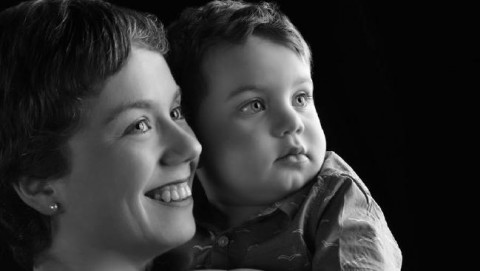
AN AUTISM diagnosis is not a joyful thing.
I might even go so far as to call it a sad occasion.
If you listen to any autism parent talking about the day they learned what their little one had, crying is definitely mentioned.
It is as if a bird found out that one of its chicks is in fact a fish. Even if, for the sake of argument, we allow this fish the superpower of being able to breathe out of the water, the bird is still justified in being scared.
It knows that this child, whom it loves very much, may never learn to fly. It may never be able to join in the world that the bird inhabits — it may find it hard to communicate.
It may be uncomfortable in an environment it spends time in. It may spend its entire life deeply unhappy but unable to go to an environment where it is comfortable.
A year ago I was in this position when my son was diagnosed with autism, at the age of 19 months.
But I did not feel unhappy, desperate, or even surprised. Actually I was pretty happy.
You see, I had actually pushed for this diagnosis and had gotten it in under four weeks.
Was this because I have always secretly enjoyed hurting little children? Was my son’s future unhappiness my aim in life? No. It was because an early diagnosis was his best chance to improve his future.
The average age for an autism diagnosis is four. The signs, however, are often obvious by the age of two — the repetitive behaviour, the stacking of toys over and over, the lack of pretend play, the absence of any kind of “look at me” or “look at this” behaviour, it’s all there to see.
If all children with autism were diagnosed at the time when the signs became obvious, and received intense early intervention, many would be able to go to a normal school, learn in a normal way, and go on to university or vocational education.
Instead, many are left with little support in early childhood and flounder their way through school, high school and into unemployment.
My son was diagnosed with moderate to severe autism. At the time of diagnosis his skill levels were similar to those of a newborn. His receptive language (that is, how many words he understood) was extremely low — I can think of only about 4/5 words that I am sure he understood.
He didn’t react to his name, he didn’t play with even the simplest toys and spent all of his time looking at his fingers or sliding toys around on the floor.
His cognitive skills couldn’t be measured at all because he didn’t do anything that showed me he could understand or manipulate the world around him — he didn’t do puzzles, or stack cups, or do the ring stacker. He couldn’t look at a picture book for five seconds.
Did I give up at this point? Did I curl up in a ball in a corner of the room and hide from the world? Well, mentally I did. But I’m Russian, and we’re a tough people.
I signed him up for ABA therapy (Applied Behavioural Analysis — you can read about that here), which has worked like a miracle.
If by miracle you mean grinding labour by four junior therapists (including me), a senior therapist and a supervisor, for five hours a day, six days a week.
When I had him reassessed six months later he had improved so much in every skill. His cognitive skills had shot up to those of an 18-month-old.
I could see a cheeky light in his eyes and his personality was starting to shine through. He was also flirting with his (female, young, attractive) therapists so much I’m considering having ‘The Talk’ with him.
We’ve used ABA therapy to teach him to do so many things that are considered to be ‘impossible’ for an autistic child. He is eating a variety of foods, up from two. He is falling asleep in 20 minutes, down from two hours.
He loves social games, hugs, playing with blocks and puzzles. He is learning to communicate through pictures and his imitation skills are improving out of sight!
My dream is that with the National Disability Insurance Scheme more families will be able to access early intervention for their children and that more children will be diagnosed early enough that it will make a difference for them. That we will all embrace our little fish, teach them to fly in our world, and learn to swim with them in their world.
After all, whether or not your child has special needs, isn’t that what good parenting is all about?
— Julia Coorey is a stay at home mum and ABA therapist for her son, who has autism. She also blogs about how wonderful and clever he is at www.michaelsmum.com, where she shares her thoughts on life, the universe and everything to do with autism awareness.
